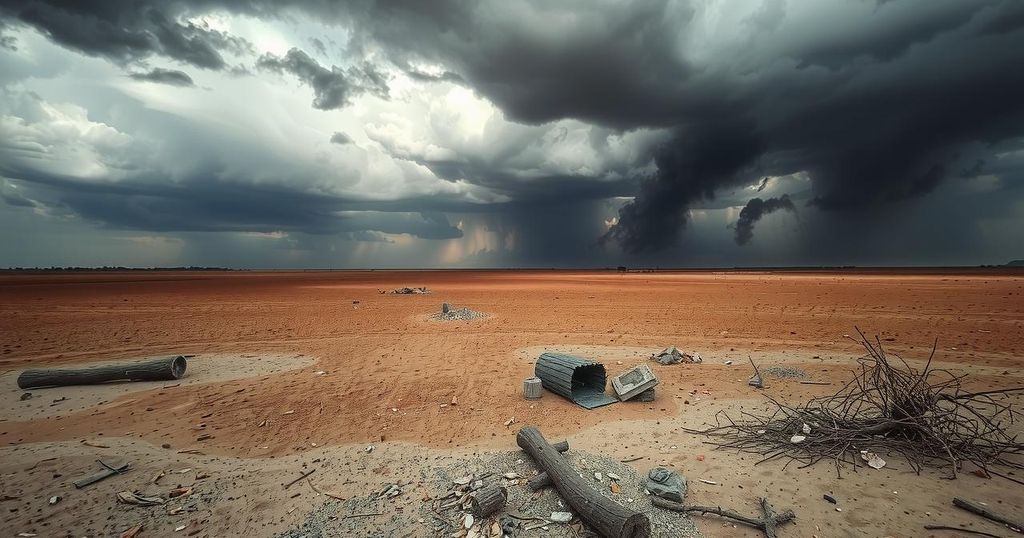U.S. Revokes Visas for South Sudanese Amid Rising Civil Unrest
The U.S. has revoked visas for all South Sudanese citizens due to the government’s failure to accept their return promptly. This decision poses risks as they may return to a nation on the brink of civil war. South Sudan has struggled since its 2011 independence to deliver basic services, with its population heavily reliant on aid that has faced cuts. Recent tensions between political factions further threaten the fragile peace and stability of the region.
The United States has revoked visas for all South Sudanese citizens, citing the South Sudanese government’s failure to timely accept their return. This decision poses a severe risk for those individuals, as they may be forced to return to an increasingly unstable environment, potentially facing civil war once again, and losing their opportunity for refuge in the United States. South Sudan has struggled since its independence from Sudan in 2011 to fulfill basic state functions due to prolonged conflict, leaving its population dependent on humanitarian aid, which has been further diminished by recent cuts from the Trump administration.
Following its euphoria over South Sudan’s independence, the U.S. now finds itself contending with a country on the edge of chaos. The internal strife accelerated when President Salva Kiir and Deputy Riek Machar clashed in 2013, igniting a civil war that has resulted in significant loss of life and ongoing instability. Despite a fragile peace deal established in 2018, challenges remain, as evidenced by the lack of progress on delayed presidential elections and a resurgence of violence, including recent arrests that have left the peace agreement hanging by a thread.
The socio-political landscape in South Sudan continues to be fragile, exacerbated by external factors such as the conflict in neighboring Sudan, which inadvertently affects oil exports vital to South Sudan’s economy. Domestic corruption further hinders the delivery of resources meant for citizens, leaving many civil servants unpaid for extended periods. Simultaneously, climate-induced disasters aggravate the situation by causing displacement and impacting critical infrastructure such as schools and healthcare facilities that are already among the poorest in the world.
Following the visa revocation announcement, South Sudan stands apart from its earlier supportive relationship with the U.S., which had provided various opportunities for its citizens. The Trump administration’s swift action raises uncertainty for many South Sudanese, especially students with ongoing educational pursuits in the U.S. The State Department’s announcement left open the conditions for future cooperation, stating that no new visas would be granted until the South Sudanese government complies fully with U.S. requirements, particularly regarding one individual referenced in the decision.
The visa revocation for South Sudanese citizens by the United States represents a significant policy shift, reflecting ongoing instability in South Sudan. Factors such as prolonged conflict, weak governance, and diminishing humanitarian support contribute to a precarious situation. As South Sudan faces renewed threats of civil war, the U.S. has imposed strict measures that prevent South Sudanese from seeking refuge, marking a stark departure from earlier support for the nation and its people.
Original Source: spectrumlocalnews.com




Post Comment